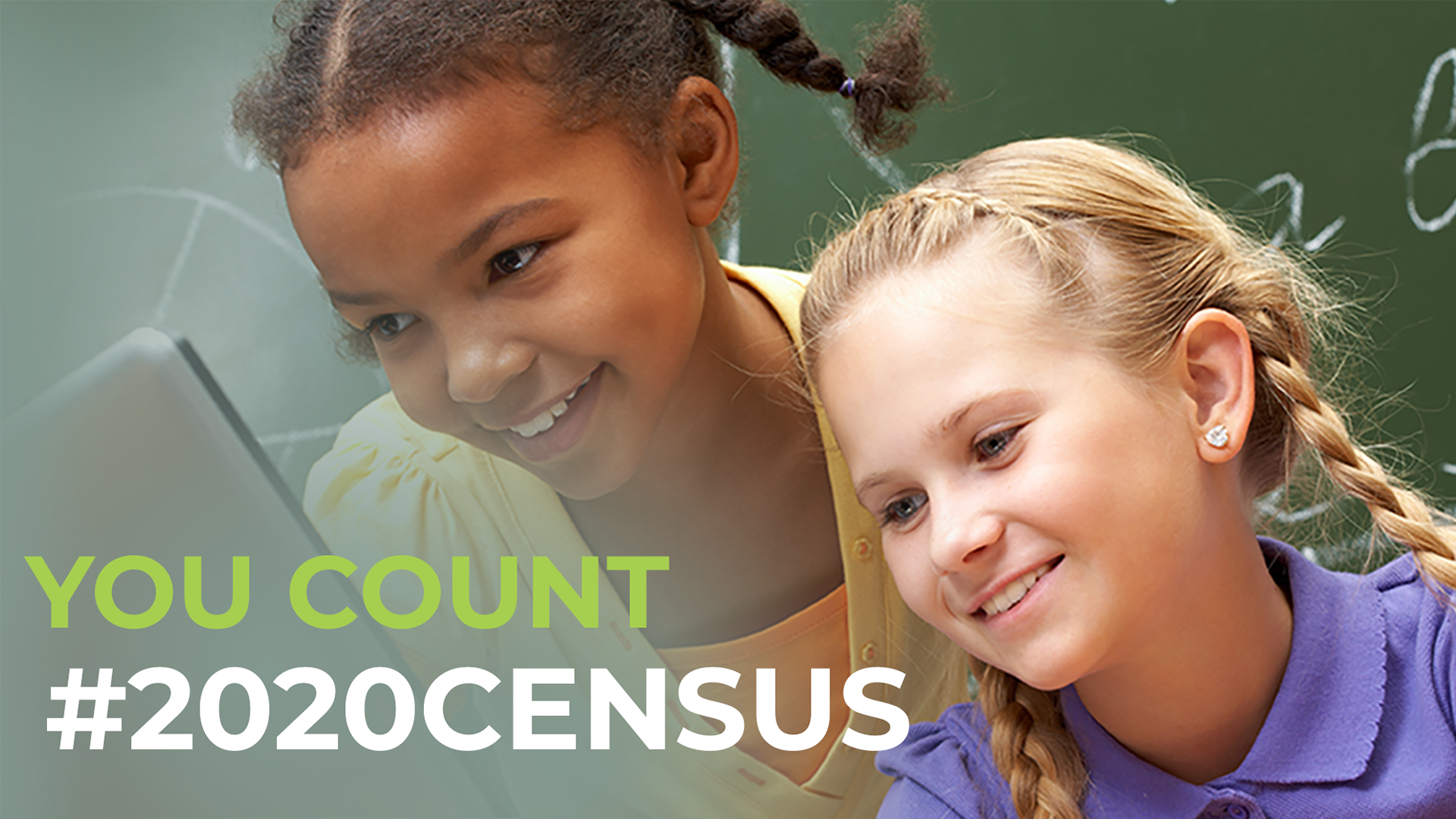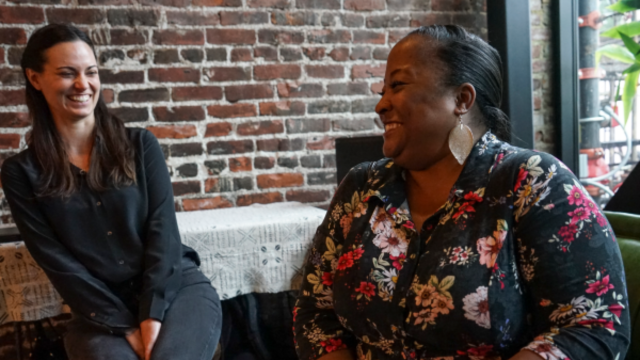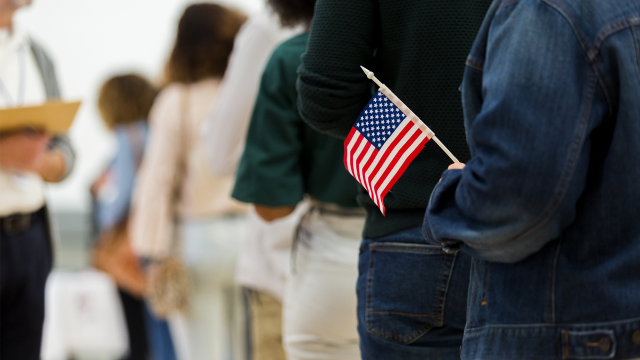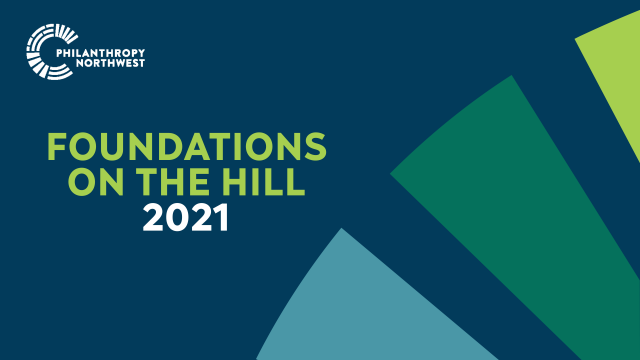
Census work is ongoing across the Northwest. However, with the COVID-19 pandemic preventing most in-person outreach and delaying various Census Bureau operations, the region’s self-response rates are lagging behind where they were at this point in the 2010 Census. The Census Bureau extended the self-response period to October 31, 2020 (pending congressional approval) to ensure a complete and accurate count for this census. The extension provides an opportunity for states to still exceed their 2010 Census response rates (self-response rankings provided below by the City University of New York's Hard to Count Map). Here's how Philanthropy Northwest’s partners across the region are adapting to the pandemic.
Alaska
Alaska ranks last in self-response rates among all U.S. states. According to The Foraker Group, getting electronic responses to the 2020 Census in Alaska is quite challenging, which is why the Census Bureau primarily relies on in-person interactions to count the state’s population. The delays in field operations have kept the response rate low, and even with operations starting up again, travel bans are common across the state - making in-person census operations even more difficult.While The Foraker Group’s Alaska Counts partners have adjusted messaging through shared materials and social media outreach, their campaign’s funding is scheduled to end in June and there is no additional funding. Encouraging participation is essential in Alaska, as an accurate count could provide significant economic benefits to the state in the coming decade.
Idaho
Idaho’s self-response rate is slightly above the national average, as they are ranked 19th among all states. According to the Idaho Community Foundation, organizations in Idaho quickly shifted outreach away from in-person methods, which has lead to creative results. For example, rather than host in-person events, student scholarship recipients with the I Have a Dream Foundation made videos about the importance of the census, in both Spanish and English, to share with the Latinx community. To provide flexibility, Idaho Community Foundation is allowing all their funding partners to use their funds for any census activities, regardless of initial plans. While times are challenging, getting a compete count remains a high priority in Idaho.Montana
The Census Bureau will not deliver mailings to P.O. boxes or rural route addresses, which poses a problem for getting a complete count in Montana as more than 35 percent of Montanans do not get mail or have a traditional address. This means the delays in the Census Bureau’s field operations have significantly dampened census participation across the state. As of early May, over 100,000 households had not received an invitation to participate, and the self-response rate is 44th among states. In particular, Montana Community Foundation notes that the delay in the Update Leave Operation, in which census workers verify addresses and leave a census packet for each household in certain areas, has kept the state’s self-response rate at one of the lowest levels in the country. Without the ability to hold in-person events, organizations are relying much more on digital marketing and announcements to get out the count. At stake is not only Montana’s share of federal funding, but also an additional representative in Congress, making a complete count extra critical.Oregon
Oregon’s self-response rate is slightly above the national average, as they are ranked 17th in the nation. While the We Count Oregon Campaign originally planned for door-to-door outreach, its phone and text banking, digital outreach and direct mail strategies are still viable. The shift to online events has increased participation in the events overall. Campaign partners, as well as Census Assistance Centers, implemented additional remote outreach and information sharing through various programs like food assistance. It's critical to count everyone to ensure the appropriate allocation of federal funding. The further from April 1 that data are collected the less accurate it becomes due to people changing locations or misremembering things about their living situation in early spring. The Oregon Census Equity Fund is still looking for additional funding to support census work throughout the 2020 Census extension.Washington
Washington has the sixth-best self-response rate in the country, but the pause of in-person outreach makes it more difficult to reach hard-to-count populations, including low-income populations, renters, rural residents, people of color, ethnic minorities and those with limited English proficiency. Nonprofits are producing face masks, grocery totes and street banners with census reminders and sending reminder postcards. They are also tailoring events to community needs: food banks are distributing printed census information along with supplies, and restaurants are giving gift card incentives for census completion. The Washington Census Equity Fund, managed by Philanthropy Northwest, provided general operating support for grantees, extended its census funding timeline and allowed grantees to alter deliverables. The Washington Census Alliance, in addition to launching their census texting tool, notes that partners are also using traditional media outlets such as radio and newspapers to raise awareness. According to the Alliance, Washington Nonprofits and the Washington State Office of Financial Management, data the census produces is essential for Washington’s recovery in terms of allocating funding for economic and public health programs.Wyoming
Nearly one-quarter of Wyoming’s population is part of the Update Leave Operation, which was delayed in Wyoming later than other Northwest states. The state’s self-response rate is 47th in the country. Wyoming Community Foundation says that their work with libraries was shut down and some census work had to be put aside to support the nonprofit infrastructure during the pandemic. Some activities were less affected, like the distribution of print inserts by the Wyoming Nonprofit Network, while the shift to digital outreach has led to online competitions and other special events, though social media is noticeably less effective than reaching people through in-person means. Although the self-response extension will help bring up participation rates, there is concern about college students filling out the census incorrectly, as well as potentially lower participation among very rural families and hard-to-count populations that already heavily distrust the government.
Overall, despite the challenges to census outreach and education resulting from COVID-19, many of Philanthropy Northwest’s partners have been championing census efforts regionwide and continue to emphasize the need for a complete count. The Funders Census Initiative also notes similar trends nationwide. Even though we have seen our partners continue these efforts, it is increasingly important that the Census Bureau sustains their efforts across the Northwest region by employing enough staff throughout the summer to make up for operational delays and working closely with stakeholders in each state to ensure a complete count.
Funders who continue to support Census 2020 outreach efforts in ways that enable nonprofits to be flexible in their implementation plans due to COVID-19 will help mitigate lower response rates due to the outbreak's ramifications. Only with an accurate count will communities receive appropriate funding and representation for years to come. To learn more about specific actions or recommendations for funders who want to support census outreach efforts, please contact our policy team.


